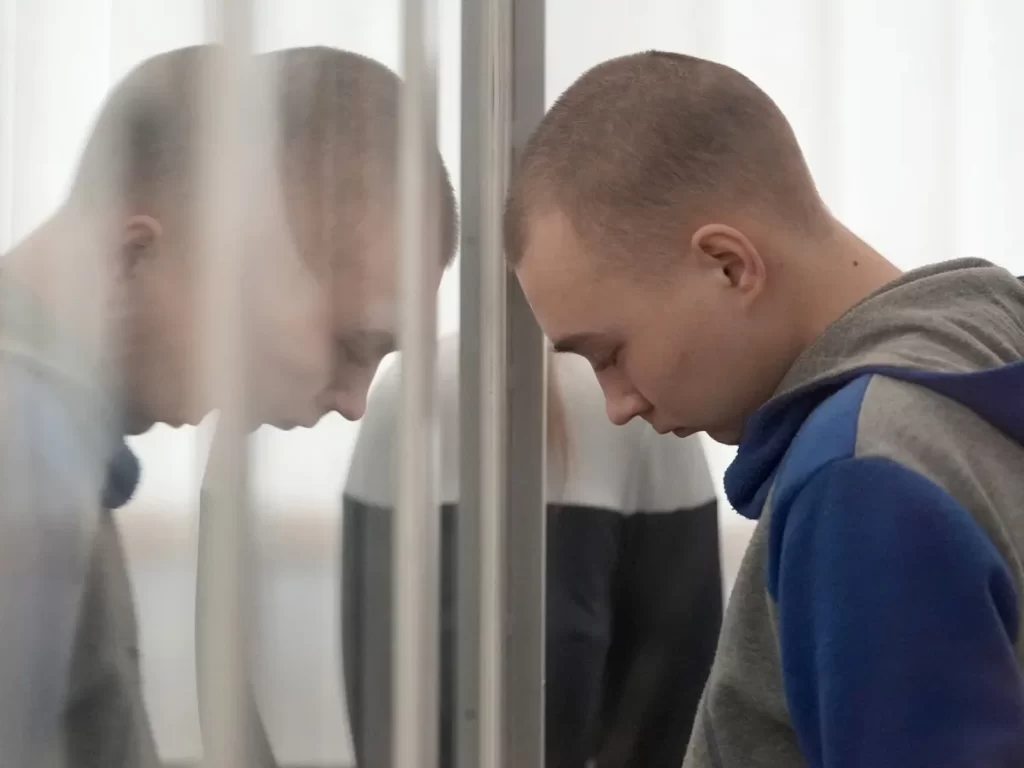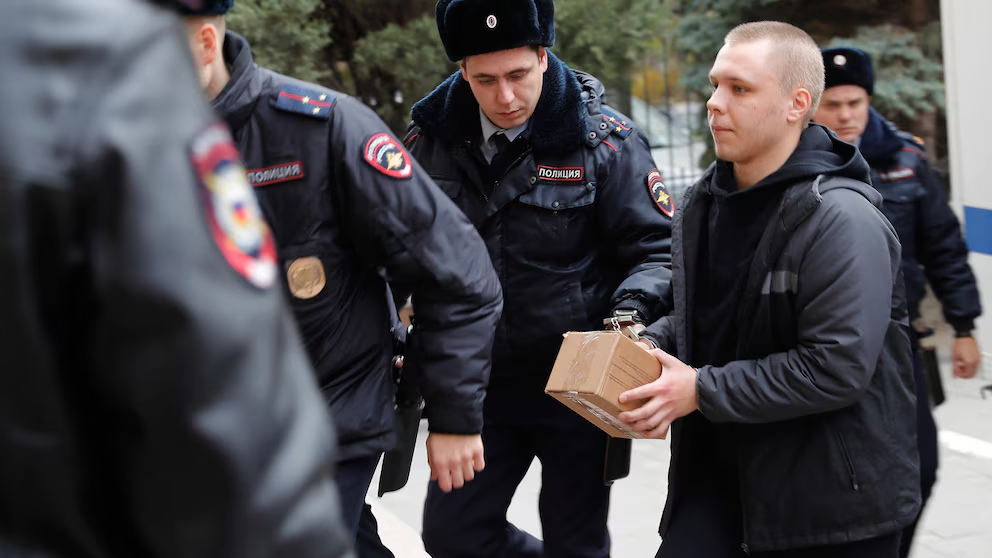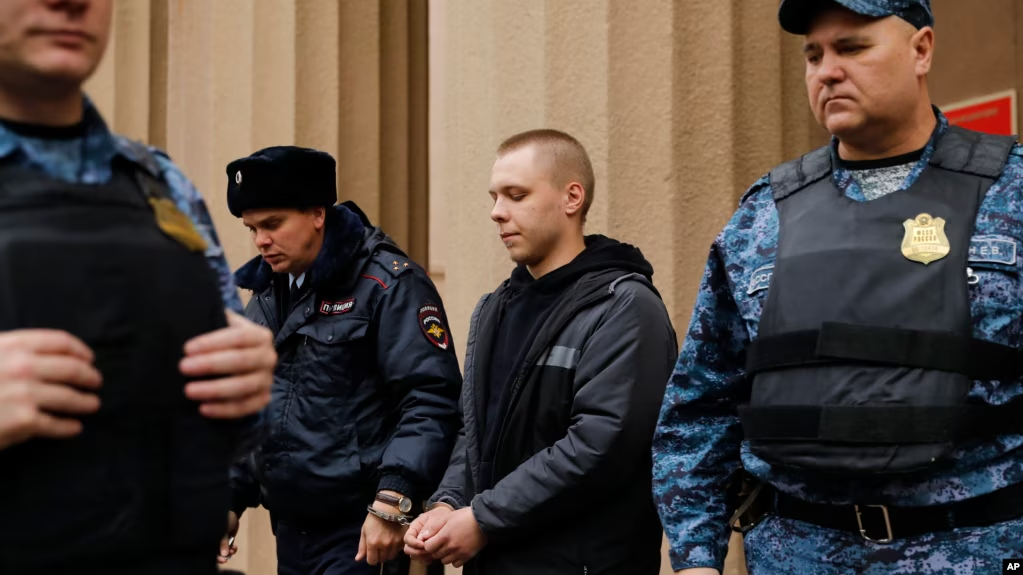A Russian man already imprisoned for burning a Quran faced new charges of high treason Thursday for allegedly sending video footage of military equipment to Ukrainian intelligence, highlighting Russia’s expanding crackdown on suspected espionage since the Ukraine invasion began.

Nikita Zhuravel, currently serving a 3½-year sentence for the Quran burning incident, appeared before the Volgograd District Court on charges stemming from his alleged 2023 recording of a trainload of military equipment and warplanes. Prosecutors claim he transmitted the footage to Ukraine’s security services, an offense that could result in life imprisonment.
The case has drawn additional scrutiny due to Zhuravel’s previous treatment in custody. While in pretrial detention for his first offense, he was beaten by the 15-year-old son of Ramzan Kadyrov, the Kremlin-appointed leader of Chechnya. Kadyrov publicly celebrated the assault on social media and later awarded his son the “Hero of the Republic of Chechnya” medal, actions that sparked public outrage but drew no criticism from federal authorities.

In a separate case Thursday, a military court sentenced Sergei Andreev to 24 years in prison for treason and terrorism. Prosecutors said he set fire to a Moscow military recruitment office in November 2023 following instructions received via messaging app from Ukrainian special services.
These cases reflect a surge in treason and espionage prosecutions following President Vladimir Putin’s February 2022 invasion of Ukraine. Human rights activists say Zhuravel qualifies as a political prisoner.

The prosecutions have targeted a diverse array of individuals, from journalists and Kremlin critics to scientists, raising concerns among human rights organizations. Recent legal changes have broadened the definition of treason to include providing loosely defined “assistance” to foreign countries or organizations, potentially criminalizing virtually any contact with foreigners.
Rights groups warn that the expanded definition and increased prosecution of treason cases represent a significant escalation in Russia’s domestic crackdown on dissent and international engagement since the start of the Ukraine conflict.



